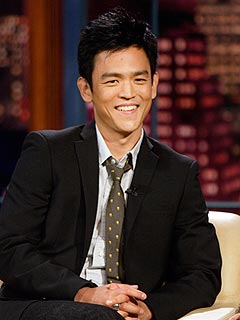TOKYO (Reuters) - Asian shares outside of Japan rose on Wednesday, led by South Korean exporters as the yen firmed amid conflicting interpretations of G7 comments about the currency's recent weakness.
The MSCI's broadest index of Asia-Pacific shares outside Japan <.miapj0000pus> gained 0.9 percent.
Seoul shares <.ks11> outperformed with a 1.5 percent jump while Australian shares jumped 0.9 percent after record first-half earnings from the Commonwealth Bank of Australia boosted sentiment.
The Nikkei stock average <.n225> slumped 1.1 percent as the firming yen prompted investors to take profits on exporters. <.t/>
China, Taiwan and Hong Kong markets remain closed for the Lunar New Year holiday.
European markets will be mixed, with financial spreadbetters predicting London's FTSE 100 <.ftse>, Paris's CAC-40 <.fchi> and Frankfurt's DAX <.gdaxi> would open between a 0.1 percent fall and a 0.4 percent gain. U.S. stock futures were up 0.1 percent to suggest a somewhat firmer Wall Street open. <.l><.eu><.n/>
Investors continued to seek cues from currency markets before a meeting of the Group of 20 finance ministers and central bankers in Moscow on Friday and Saturday, with growing international tensions over exchange rates.
At the center of the debate is Japan, where Prime Minister Shinzo Abe's government has made it clear that it will push for aggressive policies to beat stubborn deflation through drastic monetary expansion. Anticipation of much bolder Bank of Japan monetary policy has sent the yen into a steady decline, helping boost Japanese stocks to 33-month highs.
"The Japanese stock market may have rallied too strongly on expectations alone. I don't believe the Japanese government is manipulating currency rates, but it is maybe time that an equilibrium point may be sought for the yen's level given that some other countries may see weaker currencies as beneficial to their economies," said Yuuki Sakurai, CEO at Fukoku Capital Management in Tokyo.
The yen's respite from heavy selling eased concerns for investors in South Korea.
"The main board's rebound was driven by a break in the yen's weakness, following signs that the won's strength has abated somewhat," said Lim Dong-rak, an analyst at Hanyang Securities in Seoul.
The yen rallied on Tuesday, reversing the previous day's late selloff against the dollar and euro, after an official with the Group of Seven said it is worried about excess moves in the Japanese currency.
G7 governors and ministers reaffirmed their commitment that fiscal and monetary policies would not be directed at devaluing currencies, a statement meant to reassure investors that Tokyo was not aiming to guide the yen lower with its aggressive expansion of monetary policy.
"All these comments are merely stating the obvious and are not to be taken in the context of whether they are endorsing a weaker yen or not," said Yuji Saito, director of foreign exchange at Credit Agricole in Tokyo.
"What is being said is that monetary policy should be used to achieve domestic objectives and Japan is undertaking reflationary policies, not manipulating currency rates, and the result of that is a weak yen. What is asked for from Japan is to explain its policy clearly at the G20," Saito said.
The dollar dropped 0.6 percent to 92.95 yen after marking its highest level since May 2010 of 94.465 on Monday. The euro tumbled 0.6 percent to 125.01 yen, moving further away from its highest since April 2010 of 127.71 yen touched last week.
The BOJ ends a two-day policy meeting on Thursday, with markets expecting no fresh easing steps this time. But expectations are running high that further unprecedented measures will be taken under a new BOJ regime due to start next month after the terms of current top officials end.
"So far, the yen has been weakening on expectations for a bold monetary policy, and from now, Japan has to implement actual policy to justify such expectations," said Naohiko Baba, Japan chief economist at Goldman Sachs.
The euro steadied around $1.3450, keeping overnight gains made after European Central Bank President Mario Draghi said talk of a currency war was overdone, and that Spain was on the right track toward economic recovery.
In his annual State of the Union address, U.S. President Barack Obama proposed on Tuesday to hike the minimum wage by more than 20 percent, invest $50 billion on crumbling roads and bridges and spend $15 billion on a construction jobs program in a bid to boost economic growth.
U.S. crude was up 0.1 percent to $97.60 a barrel and Brent was steady around $118.61.
Palladium extended gains to a 17-month high as supply concerns sparked speculative buying, while gold edged up on demand from jewellers.
(Additional reporting by Joyce Lee in Seoul; Editing by Eric Meijer & Kim Coghill)











